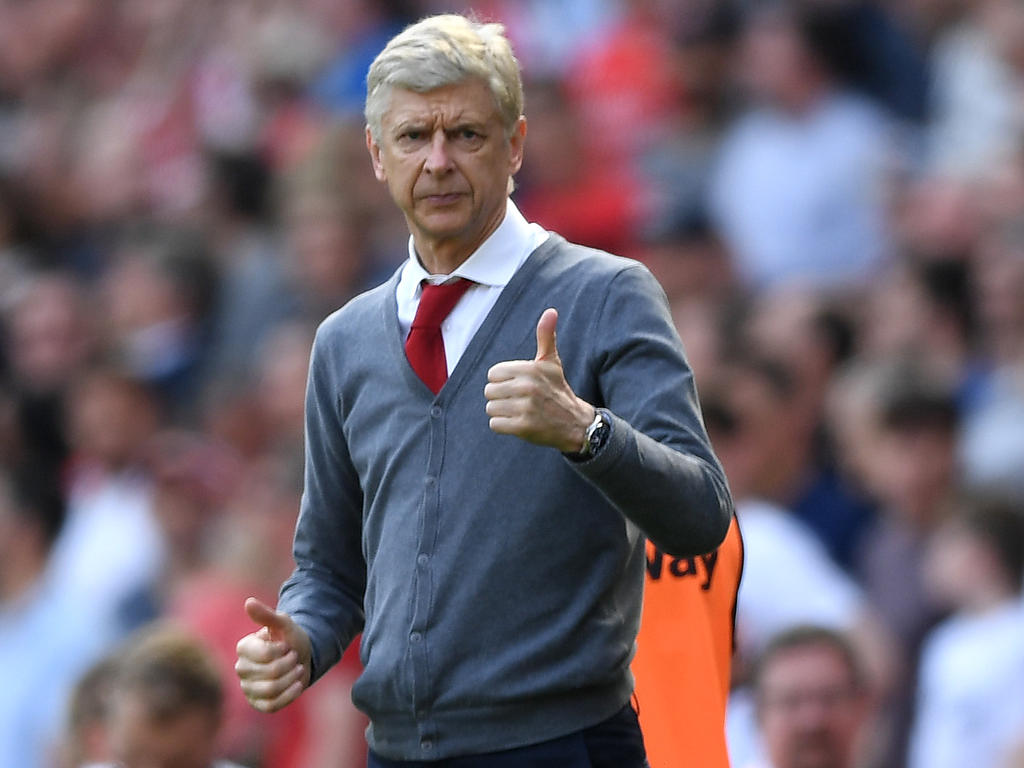Pioneer for the globalised game, Wenger exit marks end of an era

Arsene Wenger's legacy after 22 years as Arsenal manager will largely be judged by how he leaves the Gunners on and off the pitch, but his considerable contribution to making the Premier League the global phenomenon it is today should not be forgotten.
Wenger, 68, finally announced he will step aside at the end of the season on Friday, under increasing pressure from the club's supporters to go as year-on-year Arsenal fell further behind their rivals at the top end of the Premier League.
It is 14 years since the high point of Wenger's reign when he led "The Invincibles" to an unbeaten league season and the final of his three Premier League titles.
A run of qualifying for the Champions League 19 years in a row was ended last season and a second consecutive campaign without Champions League football beckons unless Arsenal can end Wenger's reign on a high by winning the Europa League next month.
The Frenchman admitted it was the sight of Arsenal's fans calling for his head and vast swathes of empty seats at recent home games that finally forced his decision to leave
"The fans did not give me the image of unity I want all over the world and that was hurtful because I think the club is respected," he said on Sunday.
But in many ways Wenger has proved to be a victim of his own success.
During a glorious first decade at Arsenal, he went head-to-head with another departed Premier League legend in Alex Ferguson's great Manchester United teams.
Their rivalry sprinkled with equal share of bad blood and brilliant football, sparked the phenomenal growth of the English game around the world that made it so attractive to the likes of Chelsea's Russian oligarch owner Roman Abramovich or Abu-Dhabi's Sheikh Mansour, who has poured billions into newly crowned Premier League champions Manchester City.
"I am touched by all the praise I got from English football and I'm grateful for having that experience in this country," added Wenger.
"That is for me special, where the football is special, where the passion is special, you see that nowhere else and I know I will not get that anymore in my life.
"I could see the development of the Premier League in 20 years that is absolutely sensational and I hope that continues for a very long time."
When Wenger's side were at their peak in 2004, they were eliminated by Chelsea in the first year of the Abramovich era in the quarter-finals of the Champions League.
The Russian then poured more millions into assembling a squad that would enjoy their own period of dominance under another Wenger foe in Jose Mourinho.
After Chelsea, came City to help dislodge Arsenal from the Premier League's established top four and even poach a number of players Wenger had developed with the promise of bigger wages.
Wenger himself was a pioneer for the globalisation of the game.
Gone are the days when a young French manager getting a top job in England would cause much fuss. But his arrival from Japan's Grampus Eight in 1996 sparked "Arsene who?" headlines.
His practices from changing diets to signing promising young players from abroad to nurture into stars were so successful they were quickly copied.
As he said himself on Sunday, he established Arsenal as a "well-respected" club around the world and has sacrificed himself to save that image from being tarnished.
A man who confessed to having worked "seven days a week for 22 years" is unlikely to head straight into retirement given his love for the game.
But, whilst Wenger's coaching career may not be done, his departure marks the end of an era for the Premier League.






